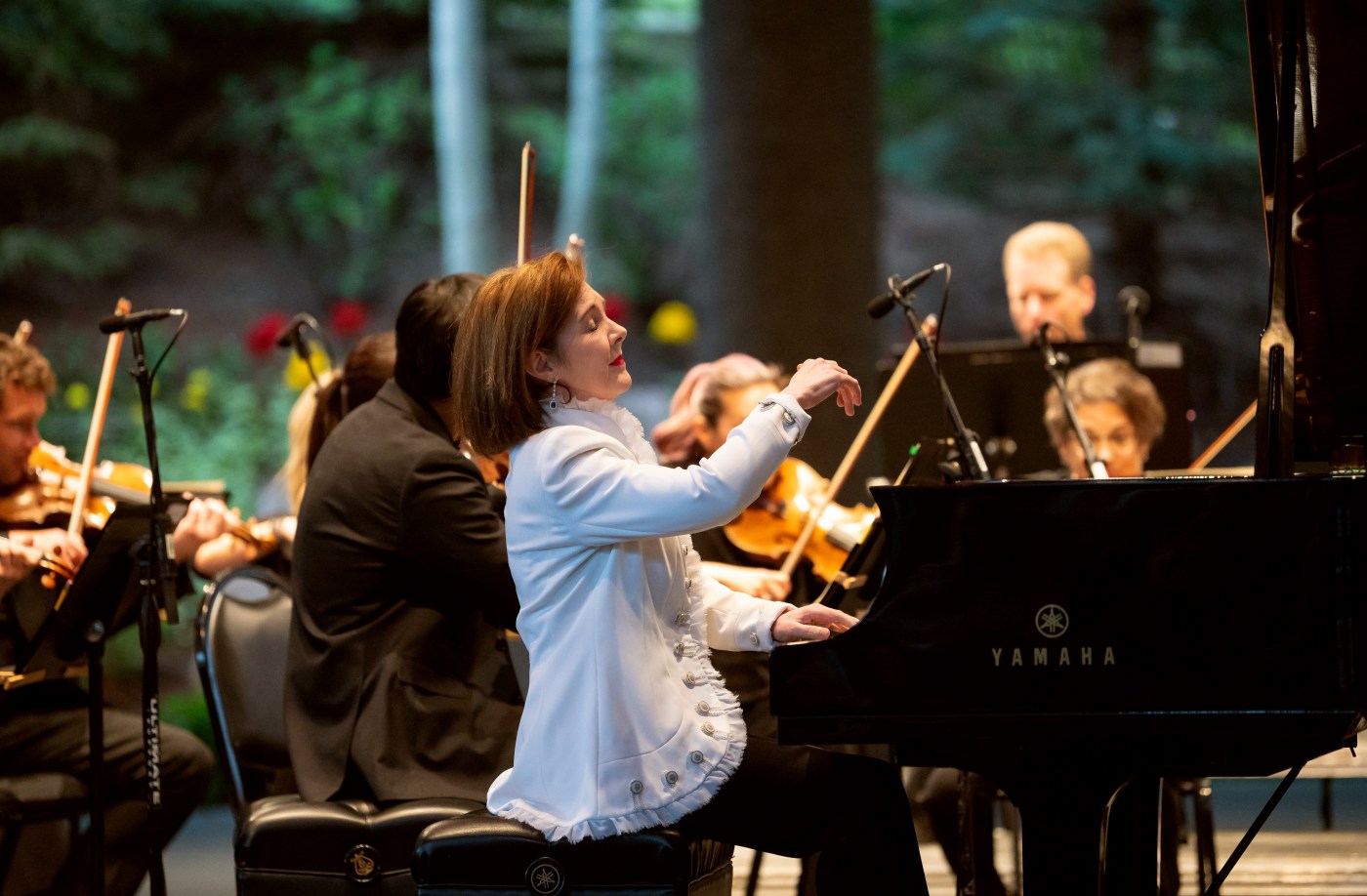
Pianist Anne-Marie McDermott joins SPCO for wide-ranging program
Pianist Anne-Marie McDermott brings her open-hearted focus to a concert with the St. Paul Chamber Orchestra this weekend. Throughout, McDermott exudes a generous spirit and love of playing with the musicians.
The last time pianist McDermott teamed up with the SPCO, it was for the Bravo! Vail Music Festival in Colorado in 2022, where she serves as artistic director. Together they played two works by J.S. Bach and the world premiere of a piece called “Samaa’” for solo piano, gongs and strings by composer Chris Rogerson. This weekend, McDermott and the orchestra play an expanded version of Rogerson’s “Samaa’,” co-commissioned by the SPCO, plus works by French composers Francis Poulenc and Ernest Chausson.
Francis Poulenc’s Sextet for Piano and Wind Quintet begins the program. Written in the 1930s, it hovers between contemporary and classical styles, with hints of jazz throughout. Its first movement makes sudden shifts in tempo, and its melody travels between instruments. Among the most startling of these shifts is a somber line played by bassoon player Harrison Miller. The sextet’s second movement offers an upbeat, cheerful mood, with quick intervals and staccato sections. Then in the last movement, you really see McDermott’s skills as she races up and down the keyboard with her dexterous fingers.
The second piece not only reunites the SPCO and McDermott, but McDermott and Rogerson, who has in the past composed a Mozart cadenza for the pianist. Speaking with Rogerson before Friday morning’s concert, McDermott said Rogerson’s piece, expanded in a new SPCO commission into three movements, evokes her own personal memories. “It’s just deeply touching music,” she said.
Titled after the Arabic word for “sky,” “Samaa’” draws inspiration from Rogerson’s travels in Tehran, but he notes in the programs the music isn’t about the places he’s visited or the people he’s met, but rather about the personal experiences he’s felt on those journeys.
The work features percussionist Matthew McClung performing gongs as well as tuned crystal glasses. McDermott herself makes her piano chime at times in the piece, while the strings employ harmonics, minor seconds, pizzicato in music that moves between a sense of awe and feeling of danger.
The second two movements, “Interlude: Stars” and “Moon” are more meditative than the first, called “Sky.” The later, shorter movements respond to the mysteries and vastness of both nature and human existence, almost on a cellular level. The music evokes the sensations we feel in response to the world.
After intermission, McDermott performs Ernest Chausson’s Concerto for Piano, Violin and String Quartet. Artistic director and principal violin Kyu-Young Kim stands for his solo role in the work, with concertmaster Steven Copes performing in a string quartet with Eunae Koh, Maiya Papach and Julie Albers.
Written in the late 19th century, Chausson’s music is more straightforward than the earlier works in the program. Where Rogerson and even Francis Poulenc embrace dissonance, Chausson’s music boasts a luxurious elegance. Kim demonstrates a velvety tone in his solo sections, even as the work highlights the six musicians as a collaborative. Tucked back behind the strings, even McDermott blends in with the ensemble, adding to the sublimity of the whole sound.
If you go
Who: The St. Paul Chamber Orchestra
What: Anne-Marie McDermott Plays Chausson, Poulenc and Rogerson
When: 7 p.m. Saturday, 2 p.m. Sunday
Where: Ordway Concert Hall, 345 Washington St.
Tickets: $12-55 at thespco.org
Capsule: The SPCO reunites with Anne-Marie McDermott for an expansion of Chris Rogerson’s “Samaa’,” co-commissioned by the SPCO, plus works by French composers Francis Poulenc and Ernest Chausson.
Related Articles
Minnesota Orchestra’s summer festival focuses on the music of the Roaring Twenties
The Hold Steady to release illustrated children’s book in October
Zach McCormick has taken over the midday shift at 89.3 The Current
Photographer’s new book offers a unique look at Aretha Franklin
Album review: Justin Timberlake is a man out of time on ‘Everything I Thought It Was’


